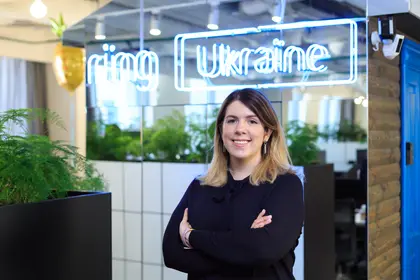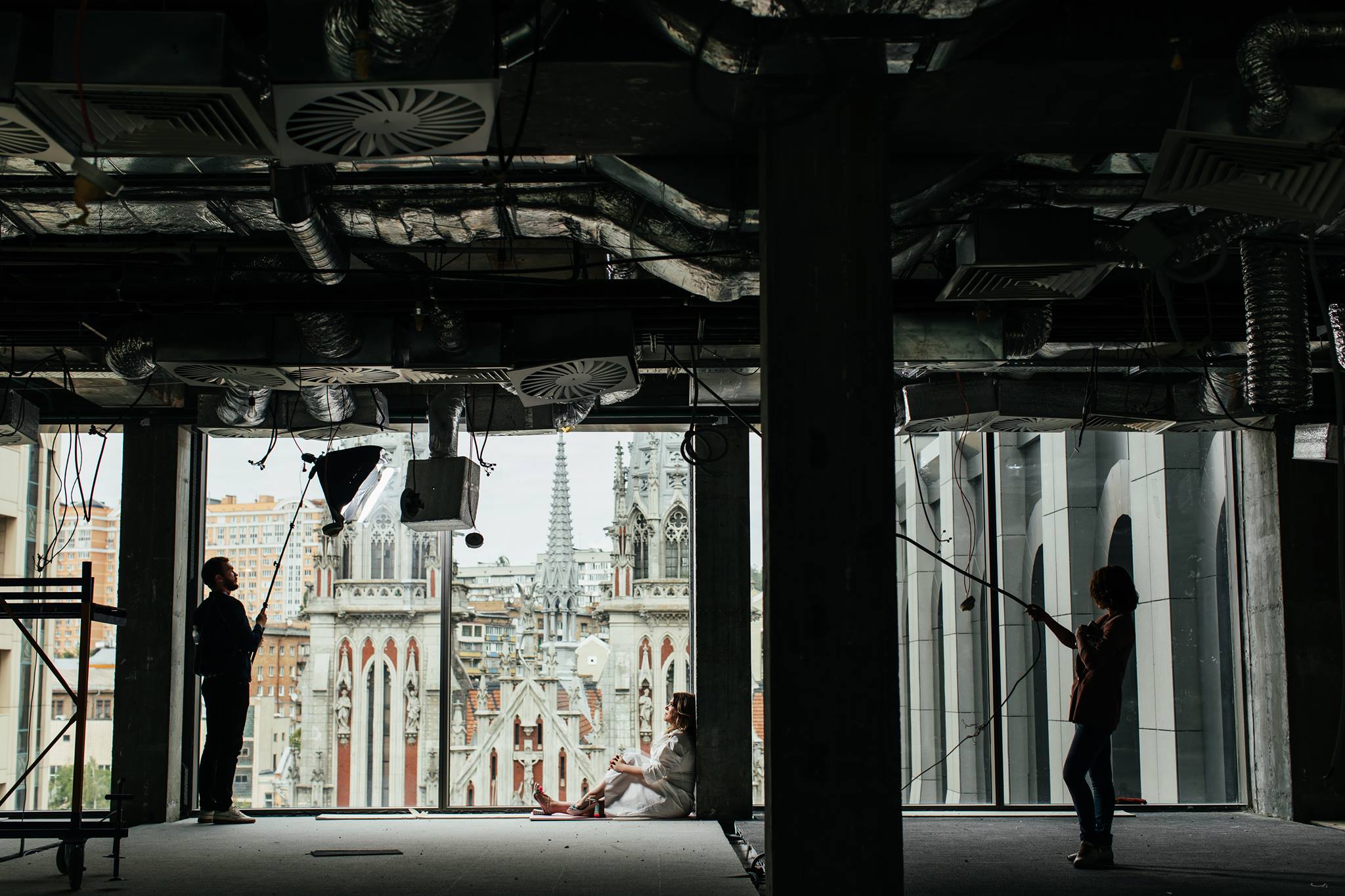U.S. tech giant Amazon acquired Ring for an impressive $1 billion this February. But the startup, which is developing smart home security systems, still has its largest R&D center in Ukraine and it isn’t planning to leave anytime soon.
Ring has hired 500 Ukrainians and is aiming to double that in the near future to lead the company’s research and development center in Kyiv. Using Ring’s technology, people can record live videos of their house entrances.
The video is then wirelessly broadcast to the owners’ smartphones so they can greet and talk to visitors remotely. The built-in cameras can even assess the body language of anyone who approaches and alert the homeowner if the caller’s actions look suspicious.
The technology was invented and prototyped by U.S. researcher Jamie Siminoff, but was developed mainly by Ukrainian experts even after Amazon wrote a check for $1 billion to buy it.
Setting up in Ukraine
Ring’s R&D center opened in Ukraine in 2016. Ukrainian Kira Rudik was appointed as its chief operating officer, a job she now describes as “the most interesting experience of (her) life.”
In fact, Rudik was the one who convinced Ring that it should have a research branch in Ukraine. Back then, she earned a living by setting up Ukrainian R&Ds for foreign companies.
She met Ring, and “after explaining how cool Ukraine is, and convincing them that Ukrainians are capable of creating incredible things,” they shook hands and opened an R&D in Ukraine.
Her initial aim for Ring was to collect a team of 10 programmers to develop software for Ring’s doorbell designed to recognize who’s in front of it – a friend, a neighbor, or an uninvited stranger.
“We started with a tiny team,” she said in an interview with the Kyiv Post. “We knew that each contribution every person made would result in either success or failure. I was looking for people who could self-sacrifice and who loved the craft.”
Rudik’s team built prototypes that surpassed all expectations. “By dint of hard work and self-sacrifice” the team coped very well, and hence, Ring wanted the Ukrainian office to become a full scale R&D – which also meant more hiring.
In the following four months, the team grew to 50 people, and by the end of 2017 they reached 100. Because of fast and constant growth, they had to move three times since 2016 in search for bigger office spaces.
Today the R&D center in Ukraine has an astonishing 500 staff members, and takes up the whole eighth floor of Kyiv’s Toronto Business Center.
But even that might not be enough: there are plans to double that figure.
And the R&D center doesn’t just make software for Ring. Since several new departments moved to Ukraine, the company is also developing mobile and desktop applications, firmware, and is working to improve the quality of streaming videos from the doorbell camera to the user’s smartphone.
Rudik says her brainchild – the local team – has many more achievements and ambitious plans she’d like to boast about – but she can’t disclose confidential information.
Since 2016, the Kyiv office has become Ring’s largest and “leading” tech center, while the company’s headquarter remains in Santa Monica, California where it was invented. There are also branches in Pennsylvania, Amsterdam, London, and Taiwan.
Rudik thinks it would be wrong to say that everything was created in Ukraine, but the contribution made by the Ukrainian office — from developing the initial device to Amazon’s acquisition – is “truly tremendous.”
Amazon deal
During the past two years U.S. electronic commerce behemoth Amazon has been aggressively spending on acquisitions of other companies.
Thus, it spent almost $2 billion on two acquisitions during the first six months of the year, including the purchase of Ring in February. For the first time in Amazon’s 24-year history, the company spent more than $1 billion on deals in two consecutive years, after its $13.7 billion acquisition of Whole Foods in 2017.
Rudik was surprised when she found out that Amazon was going to purchase Ring.
“‘Really? Wow!’ was my reaction,” she said. “I knew it meant an entirely different scale – if earlier the company saw 3 million customers as our maximum (potential), now we can have much bigger numbers.”
Amazon is tight-lipped over the reason of the purchase, but reportedly expecting it to improve its parcel delivery service. Ring’s technology will allow postal workers, when approaching a house, to communicate with a receiver about a delivery even when nobody’s home.
Five months after its purchase, Ring hasn’t entirely merged structurally with Amazon, since the two entities are still deciding how they will operate together. Ring is still getting familiar with the Amazon business structure and its products in order to integrate, but “everyone’s enthusiastic about the opportunities we have together,” Rudik said.
For now, Ring is still trying to fulfill all of the promises it made to its clients before the Amazon purchase which is “difficult, given that there’s a cloud of additional responsibilities now,” according to Rudik.
She thinks the main changes will come when Amazon starts the process of full integration with Ring’s operations. She feels her team is about to become part of something big.
“The mission of our company remains to reduce crime in neighborhoods. We’re passionate about it. We want to make people’s lives more safe,” she said. “With Amazon, we can do it faster and have a much bigger impact, which means we’re doing everything right, fulfilling our mission.”
Improving image
Ukrainians now work not only at Ring but in Amazon’s offices in Israel, Cupertino, and Seattle. Rudik often goes on work trips abroad and also meets partners and clients in Ukraine as well. Her schedule is so packed and booked months ahead that she has several pairs of shoes for all occasions scattered about her office.
“Burning alive, but I’m enjoying it,” she says. But the biggest challenge isn’t even an overscheduled timetable, but the constant work of introducing foreigners to Ukraine and breaking down the prejudices about the country.
She needs to convince them that “we’re not a third-world country, and it’s just not true that bad things always happen here, as it is according to the media.”
After a short pause, she says that perhaps it’s “the job of every person who runs a business in Ukraine to improve Ukraine’s global image.”
“If there are more success stories, then it may be easier to do it, and then more big players like Amazon will come to Ukraine.”
The Kyiv Post’s technology coverage is sponsored by Ciklum and NIX Solutions. The content is independent of the donors.
You can also highlight the text and press Ctrl + Enter





